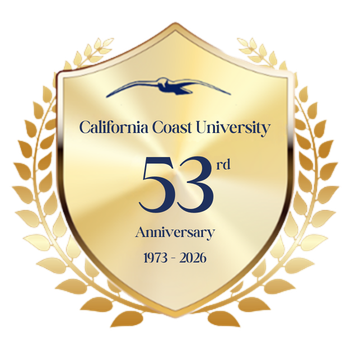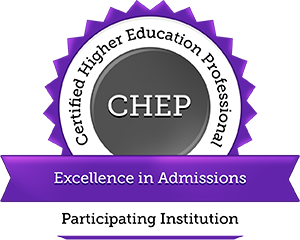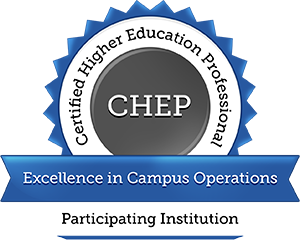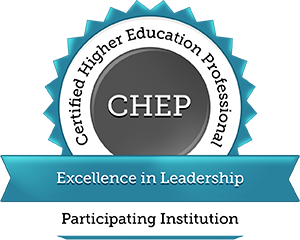Educational Administration
Doctor of Education (EdD)
Online Degree Program
The Doctor of Education online degree program in Educational Administration is designed to assist educational professionals to explore and develop a comprehensive understanding of educational leadership and decision-making processes. For this, students will examine history, theory, research, best practices, and factors impacting the field. The program includes courses in the areas of public policy, legal aspects of education, philosophical foundations of education, learning theory, analysis of current issues in education, organizational behavior and adaptive leadership, managing human resources, educational finance, advanced curriculum development, educational accountability, governance, and Reform, and educational research.
Designed For You
The California Coast University online Doctor of Education in Educational Administration program was designed for complete flexibility for the student. All courses are self-paced and completed 100% online.
-
Low tuition with interest-free payment plans as low as $150/month.
-
Flexible programs designed to fit into your busy schedule. Self-paced study with no group projects, set meeting times, or exam dates.
-
The program is not structured in semesters, quarters or terms. It is designed to allow students to begin their online studies at any time of the year.
-
CCU offers a tuition discount for Active Duty Military, Veterans, Law Enforcement, Firefighters, Government Employees, and CCU Graduates.
We also offer a 10% discount for Corporate Partner employees. For more information on how to become a Corporate Partner, see our Corporate Partnership Information Page.
*Employment verification is required. Offer good for students who enrolled after January 2024 and were offered discount at time of enrollment. Offer is not retroactive for students already enrolled. Discount and/or prices subject to change and/or cancellation at any time without notice. This offer cannot be combined with any other discount(s).
.png)
Upon successful completion of the program, students will be able to:
- Develop knowledge of historical and philosophical foundations, learning theories, public policy, and legal aspects of the field of education.
- Examine theories and processes related to the administration of educational organizations.
- Analyze factors, developments, and trends impacting educational administration.
- Examine and apply various strategies and best practices currently utilized in educational administration.
- Analyze, integrate, and synthesize key concepts and theories related to program content - utilizing critical thinking, academic writing, and research skills.
- Examine program content in relation to ethical reasoning, social responsibility, global citizenship, and civic engagement.
- Demonstrate an understanding and apply skills for interpreting, gathering, and conducting educational research.
- Design and conduct original dissertation research in the field of education specific to educational administration.
Awesome! Good program that allowed for flexibility.
Ed.D. Program Requirements:
California Coast University understands that applicants have a wide variety of educational backgrounds and skill levels and that the program may not be a good fit for everyone. With this, the University wants each applicant to be fully informed and aware of the program requirements prior to enrollment.
For additional information on Ed.D. Program Requirements, click here
For the application process, candidates must:
- Have professional experience working in a position related to education – a minimum of three to five years of professional experience.
- Submit a resume for review prior to acceptance.
- Have earned a master’s degree in education, or another field may be considered.
- Submit a writing sample prior to acceptance.
For the Ed.D. program, students must:
- Have internet access to complete research requirements for the program.
- Complete a Qualifying Examination and Comprehensive Examination.
- Complete four writing assignments - 3 - 4 pages for each of four units (16 writing assignments total per course).
- Complete a doctoral dissertation and oral defense based on original research in the field of education.
- Students complete a total of 66 semester units for the Ed.D. degree program.
Explore The Program
The Doctor of Education in Educational Administration consists of the following requirements:
For the online Doctor of Education in Educational Administration degree program, the following 2 courses must be fulfilled. Click on course title to expand and read more.
| ID | Course Name | Units | |
|---|---|---|---|
| EDU 591 | Public Policy | 3 | |
| EDU 592 | Legal Aspects of Education | 3 | |
For the online Doctor of Education in Educational Administration degree program, the following 3 courses must be fulfilled, followed by a Qualifying Examination. Click on course title to expand and read more.
| ID | Course Name | Units | |
|---|---|---|---|
| EDU 602 | Philosophical Foundations of Education | 4 | |
| EDU 610 | Learning Theory | 4 | |
| EDU 614 | History of Education | 4 | |
| EDU 615 | Qualifying Examination | 0 | |
For the online Doctor of Education in Educational Administration degree program, the following 6 courses must be fulfilled. Click on course title to expand and read more.
| ID | Course Name | Units | |
|---|---|---|---|
| EDU 618 | Analysis of Current Issues in Education | 4 | |
| EDU 621 | Organizational Behavior and Adaptive Leadership | 4 | |
| EDU 627 | Managing Human Resources | 4 | |
| EDU 630 | Educational Finance | 4 | |
| EDU 645 | Advanced Curriculum Development | 4 | |
| EDU 647 | Educational Standards and Accountability | 4 | |
For the online Doctor of Education in Educational Administration degree program, the following 2 courses must be fulfilled. Click on course title to expand and read more.
| ID | Course Name | Units | |
|---|---|---|---|
| EDU 652 | Educational Research | 4 | |
| EDU 653 | Quantitative Methods in Educational Research | 4 | |
After completing all of the above courses for the online Doctor of Education in Educational Administration degree program, a Comprehensive Examination is taken. Click on exam title to expand and read more.
| ID | Course Name | Units | |
|---|---|---|---|
| EDU 687 | Comprehensive Examination | 2 | |
After completing the Comprehensive Exam for the online Doctor of Education in Educational Administration degree program, the Research and Dissertation Phase begins. It is comprised of the following items. Click on title to expand and read more.
| ID | Course Name | Units | |
|---|---|---|---|
| GRM 710 | Dissertation Planning (Pass/No pass) | 0 | |
| GRM 712 | Dissertation Proposal | 2 | |
| GRM 715 | Dissertation and Oral Defense | 12 | |
Prerequisites to Admission:
An applicant must have earned a Master's Degree in Education. A Master’s Degree in another field may be accepted if the Admissions Committee evaluation indicates the applicant has the necessary foundation to succeed in the program. The applicant must then complete the following 4 prerequisite courses: EDU 510 Models of Teaching, EDU 523 Strategic Issues Management, EDU 524 Curriculum Design and Evaluation, EDU 536 Ethics in Education.
Online Library Resources:
To assist students with the Doctor of Education program, doctoral candidates will have 24-hour complimentary access to online library resources. The Library and Information Resources Network, Inc. (LIRN) provides students with access to multiple research databases. These resources will be essential to students at the Dissertation stage and will also provide information to reference throughout their program.
FAQ About Coursework
Required units may be satisfied in the following ways:
-
California Coast University has developed comprehensive Study Guides, for each course, that are designed to coordinate and sequence the learning materials within the required textbook(s). The following points will help to illustrate how the Study Guides are designed:
- Study Guides are based on specific textbooks, available through local bookstores, the publisher, or the University's Rental Library.
- Each Study Guide is organized with a complete syllabus, along with instructional materials to guide the student chapter by chapter through the corresponding text.
- Each Study Guide contains an overview and summary of all textbook chapters, a listing of important keywords (with definitions), self-tests (with answers) on key points, and critical thinking activities.
- Study Guides include 4 unit exams equally spaced throughout the instructional materials, four writing assignments per unit, and the final multiple choice examination.
- Examinations are designed to test the student on the information contained within the preceding chapters.
- All tests have no time limit and may be completed as open book tests.
-
Transcripts of previously completed master's or doctoral level academic work are evaluated and credit may be transferred to meet existing coursework requirements. The following guidelines are utilized when accepting transfer credit for a doctoral level degree program:
- Doctor of Education students may receive transfer credit for up to two courses (up to 8 semester units) of previously completed coursework.
- Courses must have been completed at a college or university accredited by an agency recognized by the United States Department of Education or its foreign equivalent.
- Transfer grades earned must be equivalent to a letter grade of B (3.0 GPA) or higher.
- No specialized training or experiential learning credit can be awarded at the graduate level.










.jpg)






